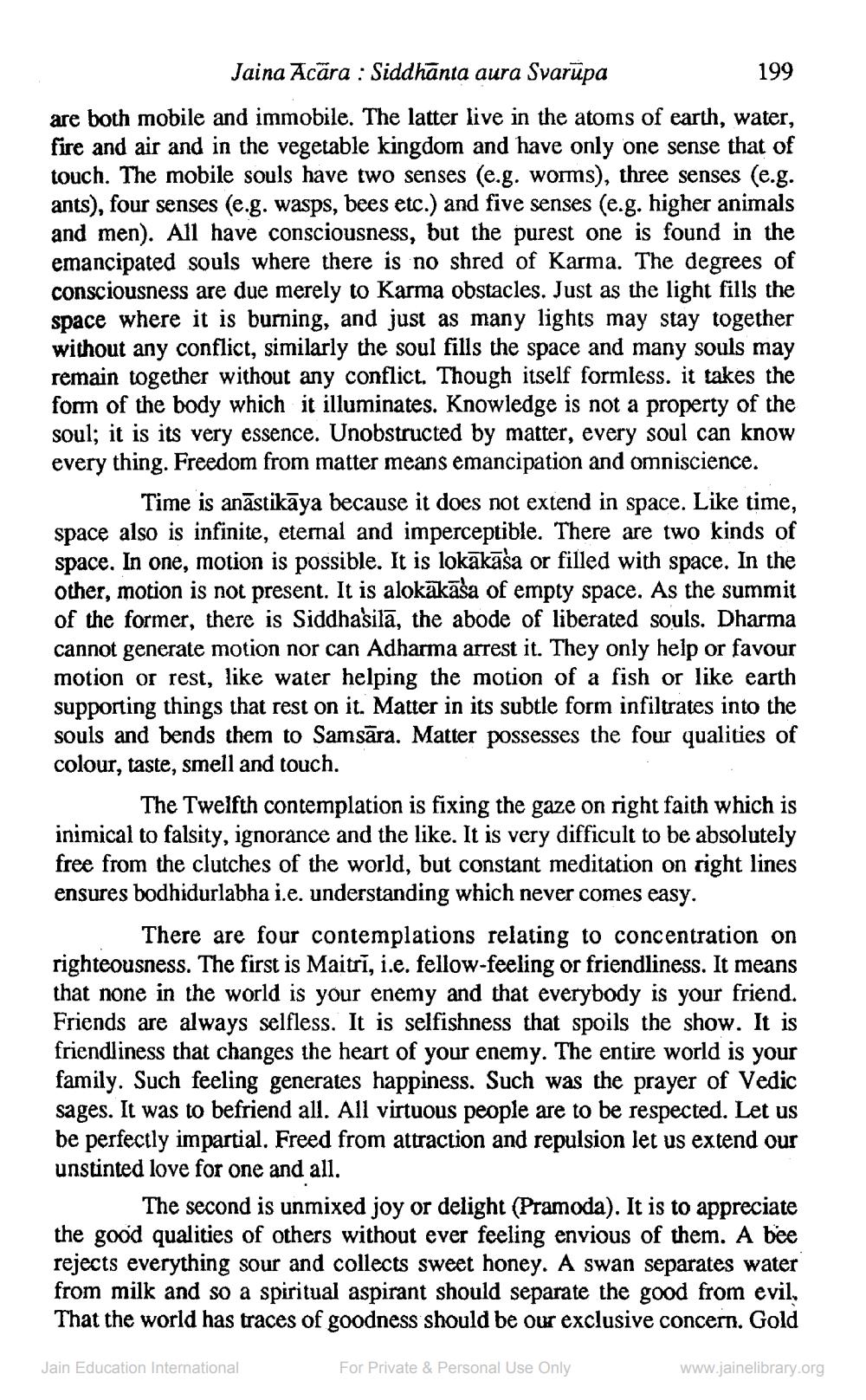________________
Jaina Acara : Siddhanta aura Svarupa
199
are both mobile and immobile. The latter live in the atoms of earth, water, fire and air and in the vegetable kingdom and have only one sense that of touch. The mobile souls have two senses (e.g. worms), three senses (e.g. ants), four senses (e.g. wasps, bees etc.) and five senses (e.g. higher animals and men). All have consciousness, but the purest one is found in the emancipated souls where there is no shred of Karma. The degrees of consciousness are due merely to Karma obstacles. Just as the light fills the space where it is burning, and just as many lights may stay together without any conflict, similarly the soul fills the space and many souls may remain together without any conflict. Though itself formless. it takes the form of the body which it illuminates. Knowledge is not a property of the soul; it is its very essence. Unobstructed by matter, every soul can know every thing. Freedom from matter means emancipation and omniscience.
Time is anastikāya because it does not extend in space. Like time, space also is infinite, eternal and imperceptible. There are two kinds of space. In one, motion is possible. It is lokākāśa or filled with space. In the other, motion is not present. It is alokākāsa of empty space. As the summit of the former, there is Siddhasila, the abode of liberated souls. Dharma cannot generate motion nor can Adharma arrest it. They only help or favour motion or rest, like water helping the motion of a fish or like earth supporting things that rest on it. Matter in its subtle form infiltrates into the souls and bends them to Samsara. Matter possesses the four qualities of colour, taste, smell and touch.
The Twelfth contemplation is fixing the gaze on right faith which is inimical to falsity, ignorance and the like. It is very difficult to be absolutely free from the clutches of the world, but constant meditation on right lines ensures bodhidurlabha i.e. understanding which never comes easy.
There are four contemplations relating to concentration on righteousness. The first is Maitri, i.e. fellow-feeling or friendliness. It means that none in the world is your enemy and that everybody is your friend. Friends are always selfless. It is selfishness that spoils the show. It is friendliness that changes the heart of your enemy. The entire world is your family. Such feeling generates happiness. Such was the prayer of Vedic sages. It was to befriend all. All virtuous people are to be respected. Let us be perfectly impartial. Freed from attraction and repulsion let us extend our unstinted love for one and all.
The second is unmixed joy or delight (Pramoda). It is to appreciate the good qualities of others without ever feeling envious of them. A bee rejects everything sour and collects sweet honey. A swan separates water from milk and so a spiritual aspirant should separate the good from evil, That the world has traces of goodness should be our exclusive concern. Gold
For Private & Personal Use Only
Jain Education International
www.jainelibrary.org




